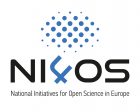Eligible projects in flagship scientific communities are the ones that address one of the following scientific and/or societal challenges:
In the field of Life Sciences
- LS Area A: Modelling and Molecular Dynamics (MD) study of important drug targets.
- LS Area B: Computer-aided drug design.
- LS Area C: Analysis of Next Generation DNA sequencing data.
- LS Area D: Synchrotron data analysis.
- LS Area E: Image processing for biological applications.
In the field of Climate Research
- CR Area A: Regional climate modelling to better understand and predict climate change and impacts, and phenomena such as dust storms.
- CR Area B: Air quality modelling, including atmospheric chemistry and air pollution transport.
- CR Area C: Weather forecast and extreme weather prediction, model development, application.
In the field of Digital Cultural Heritage
- DCH Area A: Online services and access to repositories to enable studies of the cultural heritage assets in the region (e.g., searchable digital libraries; with support of meta-data and OCR for Latin characters).
- DCH Area B: Online visualization tools to drive breakthrough contributions to heritage enquiries (e.g., interactive visualization viewers of 3D digital assets with metadata integration, remote sensing datasets, agent-based model simulations).
- DCH Area C: Training material and Tools for the creation of interactive and immersive environments to support the GLAM industry (galleries, libraries, archives and museums) with limited resources to generate virtual exhibitions of their collections of artefacts.
In the field of Computation Physics
- CP Area A: Computational fluid dynamics.
- CP Area B: Computational particle physics.
- CP Area C: Molecular dynamics.
- CP Area D: Electronic structure methods.
- CP Area E: Computational electromagnetics.
- CP Area F: Lattice gauge theories.
- CP Area G: Astrophysics.
The criteria for the evaluation of projects for accessing the available resources where:
- Scientific excellence.
- Scientific and/or social impact of the proposed research.
- The need for usage of the selected services and resources.
- The ability to provide project results (mainly data sets, but also services and software) as services for other future VRE users.
- Maturity and experience of the principal investigator and his/her team in the research field, as well as in using the selected resources and services.
- Feasibility of the project based on the technical evaluation and the availability of resources.
- Potential for collaboration among scientists in more than one eligible country for this call.
- Relevance with the above-mentioned scientific communities will be considered an asset.
- Gender balance will be taken into account.
The criteria above will be used for the evaluation of proposals during the review process. NI4OS-Europe aims at a balanced provision of resources to the whole spectrum of scientific fields between the four target communities that this call addresses, as well as to as many as possible countries in the European region.
